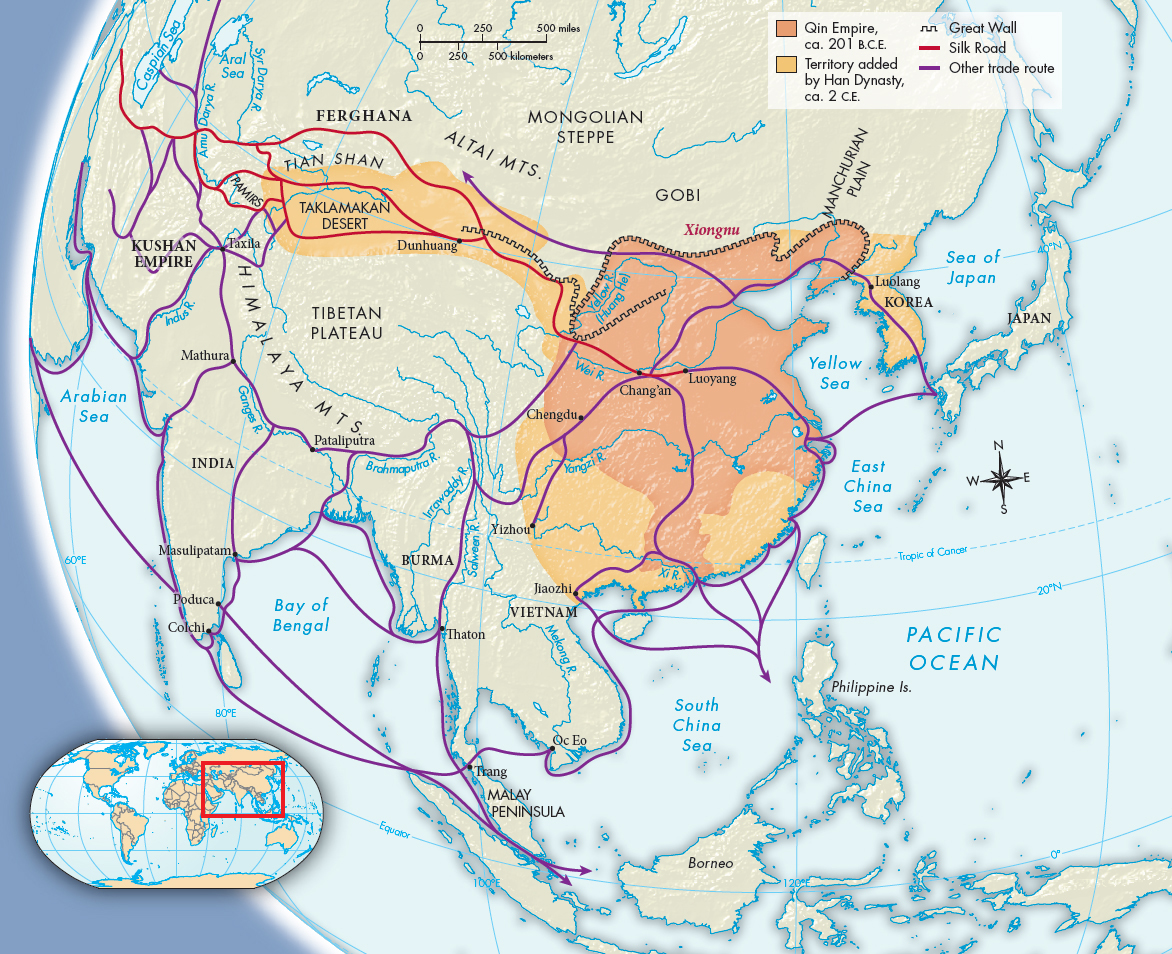Understanding World Societies:
Printed Page 178
Chapter Chronology
The Han Dynasty, 206 B.C.E.–220 C.E.
The eventual victor in the struggle for power that ensued in the wake of the collapse of the Qin Dynasty was Liu Bang, known in history as Emperor Gaozu (r. 202–195 B.C.E.). The First Emperor of Qin was from the Zhou aristocracy. Gaozu was, by contrast, from a modest family of commoners, so his elevation to emperor is evidence of how thoroughly the Qin Dynasty had destroyed the old order.
Gaozu did not disband the centralized government created by the Qin, but he did remove its most unpopular features. Harsh laws were canceled, taxes were sharply reduced, and a policy of noninterference was adopted in an effort to promote economic recovery. With policies of this sort, relative peace, and the extension of China’s frontiers, the Chinese population grew rapidly (Map 7.1).

MAP 7.1The Han Empire, 206 B.C.E.–220 C.E.The Han Dynasty asserted sovereignty over vast regions from Korea in the east to Central Asia in the west and Vietnam in the south. Once garrisons were established, traders were quick to follow, leading to considerable spread of Chinese material culture in East Asia. Chinese goods, especially silk, were in demand far beyond East Asia, promoting long-distance trade across Eurasia.
The Han government was largely supported by the taxes and forced labor demanded of farmers, but this revenue regularly fell short of the government’s needs. To pay for his military campaigns, Emperor Wu, the “Martial Emperor” (r. 141–87 B.C.E.), took over the minting of coins, confiscated the land of nobles, sold offices and titles, and increased taxes on private businesses. A widespread suspicion of commerce made it easy to levy especially heavy assessments on merchants. The worst blow to businessmen, however, was the government’s decision to enter into market competition with them by selling the commodities that had been collected as taxes. In 119 B.C.E. government monopolies were established in the production of iron, salt, and liquor. These enterprises had previously been sources of great profit for private entrepreneurs. Large-scale grain dealing also had been a profitable business, and the government now took that over as well.
